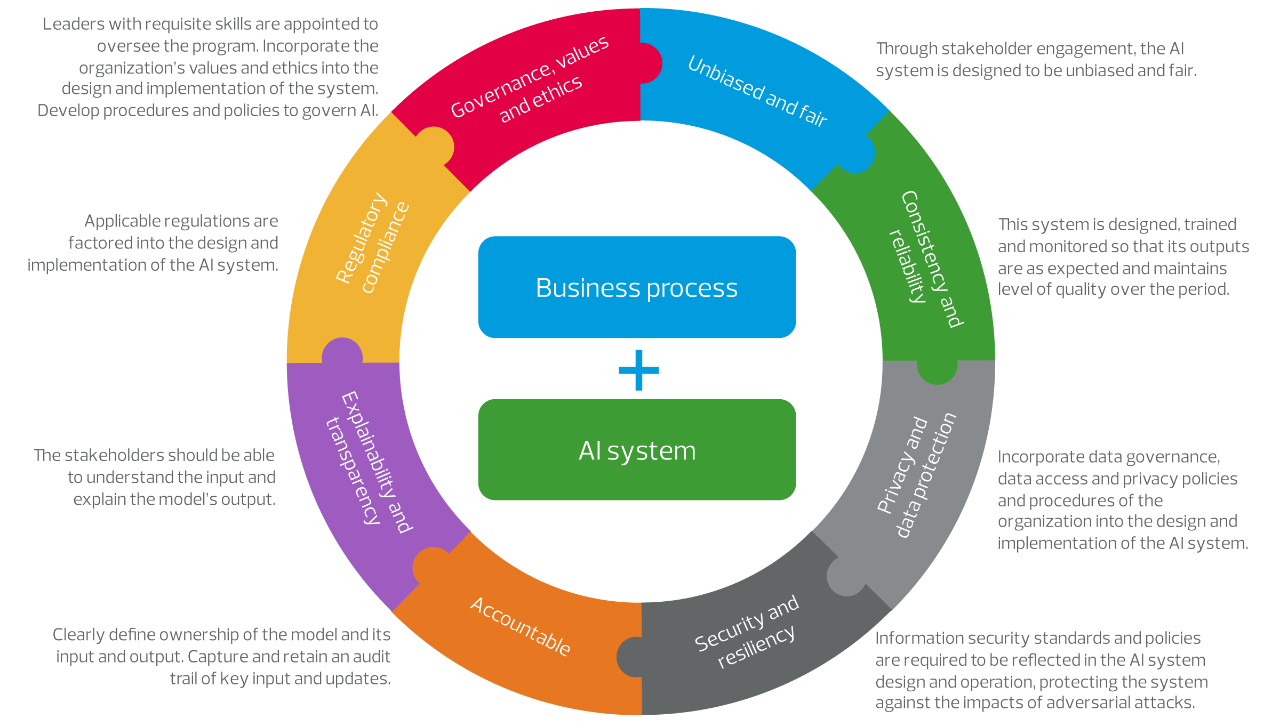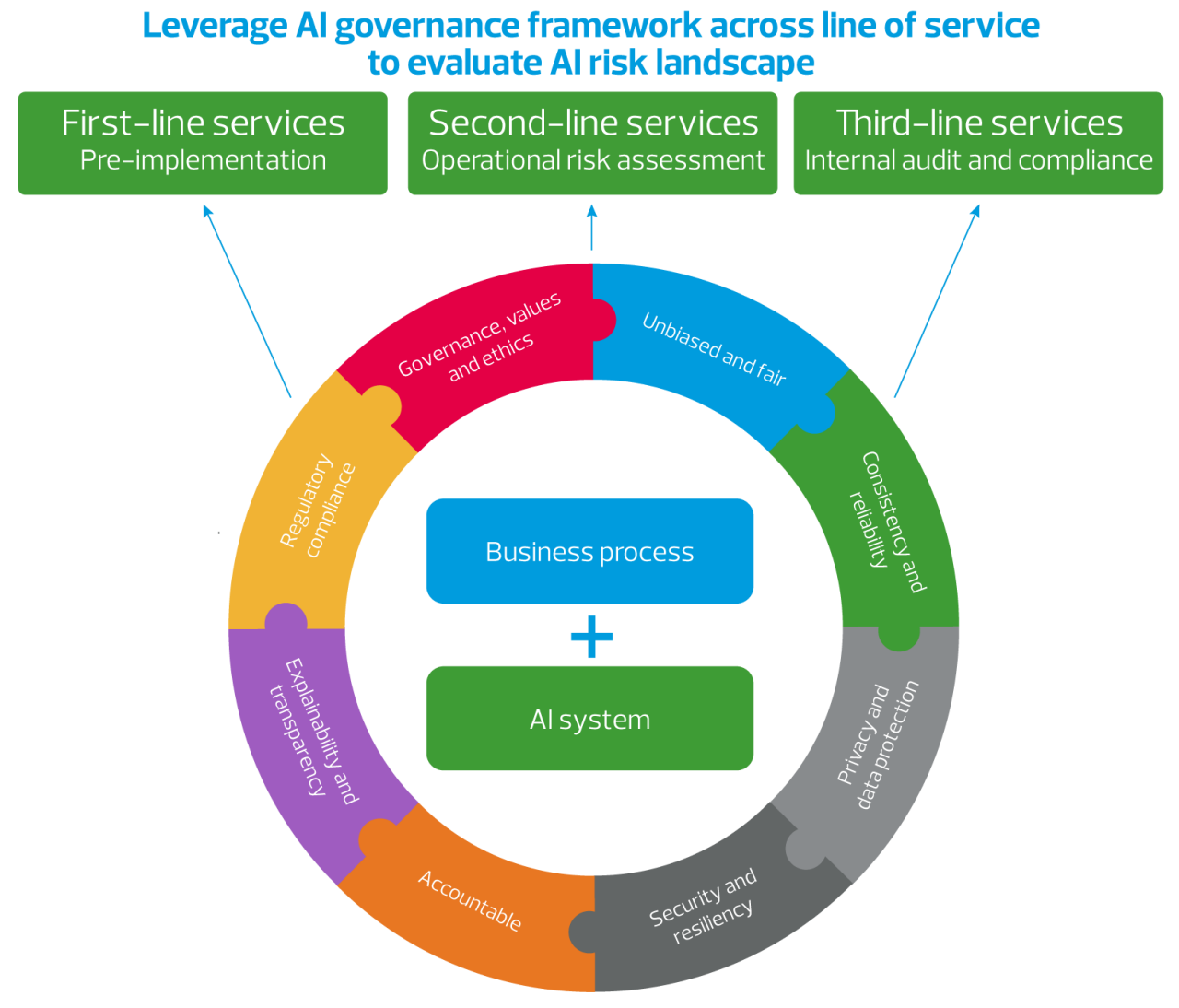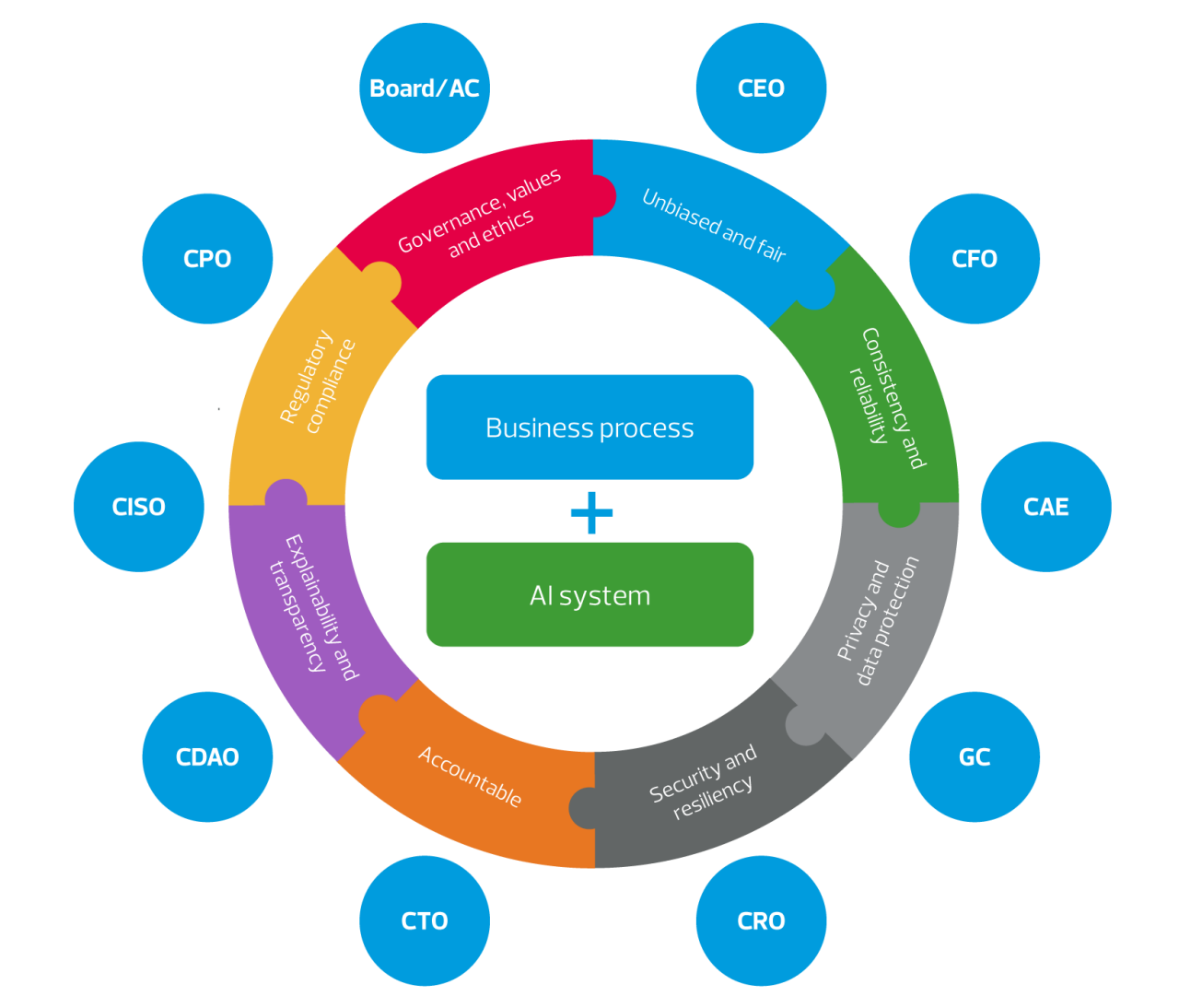ARTICLE | July 27, 2023
Artificial intelligence and, more recently, generative AI have become a key focus in the business world, as companies discover and evaluate opportunities to gain more business insight and increase efficiency. However, while companies are searching for available opportunities to leverage generative AI across business units, these new strategies do not come without risks. A measured approach to generative AI and a comprehensive governance plan can help companies develop an effective strategy that aligns with business goals and delivers on expected value.
The power of generative AI
AI is an exciting technology platform, with rapid adoption driving increased business innovation. AI tools and applications have existed for many years, using machine learning algorithms to automate or enhance real-world situations. But as the technology quickly evolves, the complex digital tools are becoming a must for organizations to drive efficiency and continued growth.
“It’s a very powerful technology,” says Manish Thakkar, a director and AI governance leader at RSM US LLP. “You have to understand it, you have to be intentional about it—and you have to pursue it, because your competition is also going to pursue it and take advantage of it. AI has quickly become a competitive requirement.”
How does generative AI work?
Generative AI is the latest advance in AI technology, with the ability to rapidly create new and original content such as images, videos, text and audio.
Walking through how generative AI tools operate, a company has a model that is trained on large data sets. A user will prompt the application with a task or question that is run through the neural network or model. The application provides results, and the user can provide positive or negative feedback, which trains the model to be even more effective.

Generative AI applications are powered by large language models (LLMs) from companies such as Google, Meta and OpenAI. Development of these models is incredibly cost-prohibitive, with the market dominated by large, well-funded tech companies. However, smaller companies and startups can easily build tools and applications that leverage the foundational LLM models.
Generative AI presents a significant opportunity for companies to gain rapid insights and get answers to complex questions that would otherwise require significant human labor and research. But ultimately, generative AI’s capabilities and risks depend entirely on how it is used.
Some of the risks of using generative AI tools and applications include increased vulnerability to cybersecurity threats and heightened privacy risks, as well as quality control and bias concerns around the data and outcomes and the interpretation of those outcomes. Ethical concerns can also arise around a computer making business rules and decisions that may lack good governance and processing.
Utilizing a framework to optimize value
Like other new innovations, generative AI is best utilized with a governance plan in place. Generative AI requires oversight because it differs from other technologies in critical ways. It evolves extremely rapidly, makes decision on its own, and generates new and original content. It is more powerful compared to human decision making because it is more persuasive, is always on and can transmit knowledge faster.
“AI tools are able to learn off of existing data sets, meaning that we now need to manage data better than ever before,” says Dave Mahoney, RSM director. “We also need to manage the development of these tools and the usage of tools by third parties better than we ever have before.”
Adopting an AI governance-first approach can enable your organization to unlock opportunities and achieve meaningful impact. With effective governance in place, you can confidently evaluate business processes to identify and incorporate third-party, external and internal AI systems into your program.
Several AI governance frameworks are currently available, including platforms from the National Institute of Standards and Technology (NIST), Google and Microsoft, as well as guidelines from several countries and organizations. Much like with privacy legislation, the European Union is a pacesetter with AI governance. The EU recently passed a draft of the AI Act, the world’s first comprehensive AI law, which could be a blueprint for other global AI standards.
In addition, RSM has developed a comprehensive governance approach that leverages all the currently available credible information on AI adoption and usage. The RSM AI Governance Framework combines elements from several leading frameworks as well as best practices from the guidelines of other countries and organizations. The solution is flexible to align with your business needs and will continue to evolve as AI tools advance and new standards are introduced.

While we highly recommend incorporating the RSM AI Governance Framework as part of the AI implementation process, it is flexible enough so it could be repurposed for second-line operation risk assessments and third-line internal audit and compliance activities.

In addition to adopting a governance framework, a company should ensure several stakeholders from across the enterprise are involved in guiding AI strategies. “Generative AI systems are going to transform business processes across various functions within the organization, and as a result it will have far-reaching impact,” says Thakkar. “Therefore, instead of relying solely on input from technology stakeholders, active participation from company leadership is a must for responsible AI adoption. For example, your CEO can provide input on governance, values and ethics, while the CFO can help manage risks related to financial reporting errors.”
“You need senior management involvement,” says Mahoney. “They need to understand the significant enterprise opportunities that are available with AI, but also how to address risks.”
In addition, your board of directors should have direct involvement in AI strategy development, as the technology could have a significant impact on the direction of the business moving forward.

Getting started with generative AI
With generative AI evolving quickly and becoming a key part of business strategy in all industries, companies must act quickly to determine where it best fits in their business. However, any strategy should also include an AI governance framework to align applications with business goals, address potential risks and ultimately implement a solution that delivers rapid insights to drive business success.

Let’s Talk!
Call us at 1 855 363 3526 or fill out the form below and we’ll contact you to discuss your specific situation.
This article was written by Manish Thakkar, Dave Mahoney and originally appeared on 2023-07-27. Reprinted with permission from RSM Canada LLP.
© 2024 RSM Canada LLP. All rights reserved. https://rsmcanada.com/insights/services/digital-transformation/responsible-adoption-of-generative-ai.html
RSM Canada LLP is a limited liability partnership that provides public accounting services and is the Canadian member firm of RSM International, a global network of independent assurance, tax and consulting firms. RSM Canada Consulting LP is a limited partnership that provides consulting services and is an affiliate of RSM US LLP, a member firm of RSM International. The member firms of RSM International collaborate to provide services to global clients but are separate and distinct legal entities that cannot obligate each other. Each member firm is responsible only for its own acts and omissions, and not those of any other party. Visit rsmcanada.com/about for more information regarding RSM Canada and RSM International.
